In late September 2019, President Donald Trump called Attorney General William Barr, seeking a favor. Trump was at the time facing impeachment in the House of Representatives for pressuring the president of Ukraine, Volodymyr Zelenskiy, to announce investigations that could be politically advantageous to the U.S. president. Trump pressed his attorney general to hold a nationally televised press conference and announce that the Justice Department had concluded that the president had broken no law. Trump was convinced that a statement of this sort by the attorney general would deliver such a severe blow to Democrats in the House that they would be unable to muster enough members willing to vote for articles of impeachment, enabling Trump to avoid the ignominy of becoming only the third-ever president of the United States to be impeached.
As Barr recounted this conversation with the president, shortly thereafter, to at least two other Justice Department officials, he turned down Trump’s request. Barr was concerned that if he gave in to the president, the already tarnished credibility of the DOJ would be further damaged. The attorney general understood that he was perceived by many of the department’s own attorneys to be radically transforming an institution dedicated “to do impartial justice” into one designed to protect the president and his cronies while targeting his perceived political adversaries. Barr explained to an aide his concern that if he acquiesced to the president’s demand, his critics would only feel confirmed in that view.
He did, however, very much want to do what he could to undermine what he considered a purely partisan impeachment proceeding, which he described to colleagues on other occasions as not just an unwarranted persecution of Trump but an assault on the office of the presidency itself. And he wanted to placate the president. So Barr suggested to Trump that instead of a press conference, the Justice Department could release a formal statement that would say much the same as the president had in mind and would clear him of any wrongdoing. Barr then moved forward, and the Justice Department published such a statement on September 25.
This, however, did not entirely satisfy the president. Trump sought an additional favor. He asked if the Justice Department was investigating Ukraine for alleged interference in the 2016 presidential election and, if so, whether Barr would be willing to say so in this statement. This was not a new theme: on at least two earlier occasions, the president had pressed Barr to look into these allegations. And not just Barr: Trump had earlier pressed two of Barr’s predecessors, Jeff Sessions and Matthew Whitaker, to investigate Ukraine. When Sessions, Whitaker, and Barr were noncommittal—or, to Trump’s mind, unresponsive—the president ratcheted up the pressure by tweeting demands for such an investigation, retailing them on Fox News, or enlisting Republican senators to press for such an inquiry.
Trump, first, wanted Zelenskiy to announce that his government was conducting a criminal investigation of former Vice President Joe Biden and his son Hunter. Hunter Biden had once sat on the board of a Ukrainian gas company, Burisma, and Trump and his allies claimed that Joe Biden had pressured Ukraine to fire a state prosecutor to shut down an investigation of Burisma that might implicate his son in some wrongdoing. These allegations against Joe Biden had long been debunked, but that did not deter the president: if Zelenskiy were merely to announce that his government was investigating the Bidens, that alone would lend legitimacy to the president’s unfounded charges, providing ammunition against Biden for the 2020 presidential campaign.
Trump had, in addition, pressed Zelenskiy to investigate similarly discredited allegations that Ukrainian officials had interfered in the 2016 presidential campaign to support Hillary Clinton. And Trump also claimed that Ukraine, not Russia, was responsible for the email hacking of the Democratic National Committee and of Clinton campaign chair John Podesta. Trump wanted Zelenskiy to announce an investigation into this, as well.
Although Trump understood it was unlikely these investigations would yield results, merely an announcement from the attorney general that the DOJ was conducting an inquiry would serve his purposes. The House impeachment report made this point clearly:
President Trump did not require that Ukraine conduct investigations as a prerequisite for the White House meeting so much as publicly announce the investigations—making clear that the goal was not the investigations, but the political benefit Trump would derive from their announcement and the cloud they might put over a political opponent.
Zelenskiy—who had been elected on an anti-corruption platform— was placed in a bind. By initially resisting Trump’s demands, he risked losing $400 million in military aid, which also might have signaled to Russia that Trump’s support for Ukraine was tepid. The withholding of the aid came at a time when more than 13,000 Ukrainians, including civilians as well as combatants, had died in the war between Ukraine and Russian-backed separatists in the East, but still Zelenskiy held firm.
Now, though, by giving in to the president’s demands that he investigate Ukraine, the U.S. attorney general was, in effect, doing for Trump what Zelenskiy refused to do. And by asking Barr for this favor, President Trump was attempting to derail his impeachment by doing virtually the same thing that caused his impeachment in the first place.
In that September 25, 2019, statement—released the day after Speaker Nancy Pelosi announced that Democratic-led committees would be opening an impeachment inquiry in the House—Barr distanced himself from any claim that he had encouraged or acquiesced in Trump’s call to Zelenskiy. Declaring that he knew nothing of the president’s call with Zelenskiy until long after the fact, Barr aimed to foreclose the possibility that Trump might still attempt to implicate him in such a scheme:
The Attorney General was first notified of the President’s conversation with Ukrainian President Zelensky several weeks after the call took place. The President has not spoken with the Attorney General about having Ukraine investigate anything relating to former Vice President Biden or his son. The president has not asked the attorney general to contact Ukraine—on this or any other matter. The attorney general has not communicated with Ukraine—on this or any other subject. Nor has the attorney general discussed this matter, or anything relating to Ukraine, with Rudy Giuliani.
That portion of the statement, a laborious denial that Barr had been involved in the matter that gave rise to the whistleblower complaint and led to the impeachment inquiry, involved one notable omission: it said nothing about how the attorney general was, in fact, implicated in the matter—by Trump’s having pressed Barr to investigate Ukraine over the Bidens and election interference. And although Trump had earlier invoked Barr’s name and the authority of his office in the now-famous July 25, 2019, phone call that Trump held with Zelenskiy, the attorney general still went ahead to declare the president exculpated:
Relying on established procedures set forth in the Justice [Department] Manual, the Department’s Criminal Division reviewed the official record of the call [between Trump and Zelenskiy] and determined, based on the facts and applicable law, that there was no campaign finance violation and that no further action was warranted. All relevant components of the Department agreed with this legal conclusion, and the Department has concluded the matter.
This portion of the statement failed to convey the limited nature of the information that DOJ officials relied on to make that judgment. Nor has it been previously reported that some career employees in the department’s Criminal Division and Public Integrity Section, who were consulted on the matter, dissented from the conclusion announced by Barr.
The statement also implied that the department—in the person of John Durham, the United States attorney from Connecticut whom Barr had tapped to examine the conduct of the Russia investigation by the Justice Department, FBI, and intelligence community officials—would be investigating the alleged Ukrainian interference in the U.S. election:
A Department of Justice team led by U.S. Attorney John Durham is . . . exploring the extent to which a number of countries, including Ukraine, played a role in the counterintelligence investigation directed at the Trump campaign during the 2016 election. While the Attorney General has yet to contact Ukraine in connection with this investigation, certain Ukrainians who are not members of the government have volunteered information to Mr. Durham, which he is evaluating.
Carefully read, the Justice Department’s statement was technically accurate but misleading. For one, it had earlier been reported in the press that Durham’s inquiry had developed from what was once an administrative review into a criminal investigation. The September 25 statement thus created the impression, without specifically affirming it, that Durham’s investigation touching Ukraine, too, was a criminal investigation. It was not.
The DOJ statement also gave the impression that Durham was investigating allegations that Ukraine had interfered in the 2016 presidential election. This was not true, either. Durham’s investigation involved only the gathering of information from private Ukrainian citizens who were involved in, or well-informed about, Russia’s efforts to interfere in the U.S. presidential election. The DOJ statement was both misleading on matters of fact and strategic in its timing—it lent credence to allegations that were baseless, and it coincided with the beginning of the House impeachment inquiry.
In response to my questions about the September 25 statement, Kelly Kupec, the director of the Justice Department’s Office of Communications and Public Affairs, told me: “I am fully confident in the statement’s veracity and accuracy.”
Trump and his allies have never been able to offer any credible evidence for the purported Ukrainian plots. U.S. intelligence agencies had already concluded that these alleged transgressions were in fact conspiracy theories that originated with the GRU, Russia’s military intelligence agency, in order to deflect attention from Russia’s own covert interference to help Trump win election in 2016: indeed, in November 2019, The New York Times reported that Russia had attempted to “frame” Ukraine as the perpetrator of its own hacking. Russia’s disinformation eventually “worked its way into American ecosystems, slushing around until parts of it reached Mr. Trump,” who adopted it as his own, the Times reported. In August 2020, a bipartisan report by the Senate Intelligence Committee reached similar conclusions.
But now that Trump was facing impeachment proceedings, he and his advisers were determined to exploit these conspiracy theories in the service of the president’s legal defense. If it could be made to appear that Joe Biden had done something nefarious regarding Ukraine, and that Ukraine, not Russia, had tried to subvert an American election, then the president’s legal team and his other defenders might plausibly be able to argue that by demanding the investigations of Ukraine the president had acted in the public interest. The president’s actions could be portrayed not only as excusable but even laudable. Trump’s political instincts proved very much correct: by the time the impeachment went to trial, this would indeed prove to be one of the most effectively deployed arguments by the president’s defenders in the Senate.
That was not all. Behind the scenes, Barr had taken a series of actions not only to undermine efforts to impeach Trump but also to shut down any potential criminal investigation of the president before one might even get started. Justice Department attorneys involved in the process (and who requested anonymity) told me that some of them believed that Barr was once again placing his loyalty to Trump above the department’s constitutional duty to investigate potential law-breaking at the highest levels of government.
In order to certify that Trump had done nothing illegal, Barr short-circuited the normal process for such deliberations. People involved told me that more than one attorney in the department’s Criminal Division, Public Integrity Section, and National Security Division, who were tasked with deciding whether a criminal investigation was warranted, felt pressured to make a decision with insufficient information and in haste.
Specifically on the question of whether the president had violated the law by withholding almost $400 million in military aid to Ukraine unless Zelenskiy announced investigations of Trump’s political opponents, more than one career DOJ official said their limited review made it premature to decide there was no criminal wrongdoing. According to one of them, these Justice Department lawyers were provided with little more than the whistleblower complaint and the rough transcription of the Trump-Zelensky phone call. Much of what the complaint reported was, by the whistleblower’s own admission, secondhand—meaning that DOJ officials were pressed to make their decision without any opportunity to interview anyone who might have firsthand knowledge of the matter.
Further, by acceding, at least in part, to the president’s demands that he investigate Ukraine, the attorney general was, in effect, doing for Trump what Zelenskiy had refused to do. And President Trump was attempting to derail his impeachment, with Barr’s assistance, by doing virtually the same thing that had led to his impeachment in the first place—pressing an official to open meritless criminal investigations for purely political purposes.
When I sought further comment from the Justice Department for this reporting, Kerri Kupec, the DOJ spokesperson who had originally delivered the September 25, 2019, statement, denied that the White House had been involved in its drafting: “The statement was written exclusively and independently by Department lawyers after extensive fact-gathering in consultation and approval received by all relevant Department stakeholders,” she told me in a prepared statement.
Kupec said that she was the primary author of the Justice Department statement; input was also provided her by other Justice Department “officials,” “components,” and “stakeholders.” She further asserted that while the statement was provided to the White House prior to being released to the public, “the purpose of this ‘was a courtesy heads up, and not for input or edits.” Kupec said that this routinely reflected her policy of dealing with the White House: “This was no exception.”
But Kupec said she could not speak to conversations between President Trump and Attorney General Barr regarding the press statement. The Barr Justice Department declined to comment on that issue.
According to two former White House officials who spoke to me for this story, Trump spoke to aides about a second, still more audacious scheme to obfuscate the impeachment effort—one in which he again cast Barr in a leading role. Parallel to his effort to persuade Barr to have the Justice Department clear him, and building upon its foundation, this scheme encompassed many of the same elements: Trump wanted Barr to say that when Trump had pressured Zelenskiy to investigate Ukraine in the July 25 phone call, the U.S. president was acting explicitly on the instructions of his attorney general, in order to further an already existing DOJ investigation.
Trump felt that the potential cover story might be believed because, though built on a foundation of lies and conspiracy theories, it relied on established fact: Trump had said that he was already working with Barr on the issue, according to the transcript of the conversation released by the White House, and wanted the Ukrainian president to join the effort. Trump told Zelenskiy he was “going to have the attorney general call,” so that together “we will get to the bottom of it.”
Separate from the Zelenskiy overture, Barr had engaged Trump to make personal calls to several foreign heads of state to ask for assistance with John Durham’s investigation. Trump reasoned it would be easy for Barr to say that the Zelenskiy call was simply another of these calls. Nobody would impeach a president of the United States for using the powers of the presidency to aid the Justice Department in a lawful investigation, at the request of the attorney general, Trump reasoned.
I learned the details of this scheme from a former senior White House adviser, to whom Trump spoke directly about his idea; it was corroborated by a second official who had reliable secondhand knowledge of the matter. I was not, however, able to confirm whether any conversation between the president and the attorney general to discuss the stratagem subsequently took place. Barr would have had good reason to demur: there was no serious DOJ investigation involving Ukraine at the time, and the attorney general’s agreement to do what Trump wanted to do would have required him to lie on behalf of the president to the public and potentially answer questions about it under oath.
The day the Justice Department statement was released was an extraordinarily busy and consequential one. It was on the morning of September 25, 2019, that the White House released a partial readout of the July 25 transcription of President Trump’s call with Zelenskiy, apparently in response to the whistleblower complaint that was delivered to lawmakers on Capitol Hill later that same day. The day before, Speaker Pelosi had announced the House was undertaking a formal impeachment inquiry of President Trump. And hours after the phone call transcription was released, Trump met Zelenskiy in person for the first time, at the United Nations in New York. With the two presidents sitting side by side and facing a bank of television cameras, Zelenskiy gave a diplomatic account of their July conversation: “We had, I think, a good, a good phone call. It was normal. We spoke about many things, and I think, and if you read it, nobody push—pushed me.” At which President Trump interjected: “In other words, no pressure!”
The press conference coincided with the Justice Department’s release of the statement that Barr had devised to undermine the impeachment inquiry so that it would have maximum effect. And so the joint White House–Barr DOJ strategy was highly effective. Trump believed that Zelenskiy saying he did nothing wrong, combined with the Justice Department saying that Trump did nothing illegal, meant that he likely would escape impeachment.
The attorney general’s intervention also went on to play a very significant part in the president’s defense during the impeachment process. The credence it gave to the baseless notion of election interference by Ukraine paved the way for Republican senators to argue that Trump had been acting in the national interest by withholding military aid until Zelenskiy agreed to announce an investigation. That defense could not have been so successful without the president and his attorney general’s allied efforts to turn what was once a fringe conspiracy theory supplied by Russian intelligence agencies into mainstream Republican talking points.
Elizabeth Holtzman, a four-term representative from New York’s 16th Congressional District, who was a member of the House Judiciary Committee during the committee’s impeachment proceeding against President Nixon in 1974, told me that the new information disclosed in this story, about Trump’s efforts to enlist his attorney general to mislead Congress just prior to and during his impeachment, is strikingly similar to actions that the committee voted to impeach Nixon for—and as such, presaged Trump’s actions in the present day.
Holtzman noted that one portion of the first article of impeachment charging Nixon with obstruction of justice was “our finding that Nixon turned over misleading information to us and made misleading statements to bamboozle us,” and which “were designed to impede our ability to conduct a full and fair investigation.” By a vote of 26–13 (including six Republicans), the committee approved the article of impeachment against Nixon, charging that he was guilty of “making or causing to be made false statements for the purpose of deceiving the people of the United States into believing that a thorough and complete investigation had been conducted.”
Holtzman said Trump’s efforts to have his attorney general lie on his behalf and also disseminate a misleading statement to the American people to help him escape impeachment paralleled Nixon’s conduct: “You cannot put out false and misleading statements intended to interfere with the impeachment process, and do so with impunity.” Holtzman added that had the actions of both Trump and Barr been known at or prior to the time of the impeachment proceedings, these actions themselves could have become “grounds for new impeachable offenses.” Holtzman, who also later served two terms as district attorney in Kings County, New York, went on to say that the actions of both men might also constitute criminal conduct and be subject to prosecution.
Holtzman’s analysis was echoed by Gene Rossi, a former career federal prosecutor with the Justice Department for close to 30 years, who told me that “the president’s unseemly request to his attorney general to make materially false and misleading statements to defend himself against impeachment is a classic act of obstruction of justice.”
Kimberly Wehle, a former assistant U.S. attorney in Washington, D.C., is now a professor at the University of Baltimore Law School. During the Clinton years, she served as an associate independent counsel investigating the Whitewater matter, during which she worked with Brett Kavanaugh and Rod Rosenstein and for Kenneth Starr. Regarding the new revelations in this story, as well as other already publicly known allegations of obstruction of justice involving President Trump detailed in the Mueller report, she told me: “Federal law confines obstruction of justice to actions that influence the administration of justice so long as they are done ‘corruptly.’ That is a high bar, to be sure, but no one can seriously doubt anymore whether Trump acts with corrupt intent, including with Bill Barr.”
A highly regarded constitutional scholar, Wehle noted that during Trump’s impeachment, some Republicans “floated” the theory that the “president cannot obstruct justice because he is charged with enforcing the law.” This misplaced notion, she says, “tortures the Constitution,” further noting: “If that’s the best argument for justifying the actions of Trump and Barr, it spells trouble for them if they are ever subjected to serious criminal investigation.”
She adds: “Bill Barr is so entangled with Donald Trump’s myriad abuses of office that I wouldn’t be surprised if he’s already reached out to his own counsel for advice on his liability under a Biden administration.”
Stuart Gerson, who served under Barr (who was attorney general at the time) as the Justice Department’s assistant attorney general for the Civil Division, during the George H.W. Bush administration, told me that despite the new evidence detailed in this story, Barr is “not going to allow for there to be any obstruction of justice investigation or obstruction of justice prosecution as long as he is attorney general.” President Trump can expect to continue to receive “aid and comfort from his attorney general . . . at the expense of the fair administration of justice and rule of law.” Noting that Barr chose not to investigate further compelling evidence uncovered by special counsel Robert Mueller that Trump may have obstructed justice to impede investigations conducted by the FBI, Justice Department, and the special counsel into Russian interference in the 2016 presidential election, Gerson commented, “The only way any of this gets looked at is if there is a new administration in office.”
The effect of Barr’s misrepresentations in the Justice Department’s September 25, 2019, statement was immediately evident once the impeachment trial of President Trump got underway in the Senate. Barr’s misleading statement that there might be legitimate reasons why Trump withheld military aid to Ukraine, other than to aid his own reelection campaign, was adopted by several Republican senators defending Trump.
Senator John Neely Kennedy, of Louisiana, asked his colleagues to consider two “scenarios”:
Number one, the president asked for an investigation of a political rival. Number two, the president asked for an investigation of possible corruption by someone who happens to be a political rival. The later would be in our national interest. The former would be in the president’s parochial interests and would be over the line. I think this case is going to come down to the president’s intent—his motive. Did he have a culpable state of mind?
Trump’s survival instincts were vindicated. Kennedy’s defense of the president would almost certainly have never occurred without Barr’s intervention. Many of the other arguments made by the president’s attorneys and senators defending him were often implausible, illogical, or improbable, or some combination thereof. The argument devised by Trump and Barr and argued by Kennedy was far less so.
Kennedy was the perfect senator to make the case. He had earned a law degree from the University of Virginia and also held a Bachelor of Civil Law degree from Oxford University. He was regarded as one of the more respected legal minds in the Senate, and his arguments carried weight. Other senators followed Kennedy’s lead.
Chairman of the Homeland Security Committee Senator Ron Johnson, of Wisconsin, declared: “Unlike the narrative of the press, that President Trump wants to dig up dirt on his 2020 opponent, what he wants is an accounting of what happened in 2016. Who set him up?”
Chairman of the Senate Finance Committee Charles Grassley, of Iowa, argued that the “House’s ‘abuse of power’ theory rests entirely on the president’s subjective motive,” and that the House managers had been unable to make a conclusive case.
Chairman of the Senate Intelligence Committee Senator Richard Burr, of North Carolina, argued that there was an equivalence between Russian and Ukrainian efforts to influence the outcome of the 2016 presidential election: “There’s no difference in the way Russia put their feet, early on, on the scale—being for one candidate and everybody calling it meddling—and how Ukrainian officials did” the same thing, Burr said. This despite the fact that Burr’s own committee was in the middle of compiling a thousand-page report, now published, that not only gave a full account of the Russian interference but also concluded that the Ukraine allegations originated in a disinformation scheme deployed by Russian military intelligence to deflect attention from its own involvement.
After a curtailed debate, with no hearing for witnesses, the Senate voted 52–48 to acquit Trump on the first count of impeachment and 52–47 on the second; both votes fell well short of the two-thirds margin required to convict the president and remove him from office. Afterward, William Barr defended his aggressive efforts to protect the president. The president’s adversaries, he said, were “waging a scorched-earth, no-holds-barred war against this administration.” That, he said, was “undermining the rule of law.”
Murray Waas is an independent journalist who writes frequently about rule of law and national security issues, and where the two intersect. He has broken significant stories on the special counsel’s investigation of President Trump and related controversies for the New York Review of Books, Vox, Foreign Policy, and The New York Times. He has previously worked as the company wide investigations editor for Vice, as an investigative correspondent for Reuters, and as a senior editor for National Journal. Waas has been a finalist for the Pulitzer Prize, a winner of Harvard University’s John F. Kenney School’s Goldsmith Prize for Investigative Reporting, and a winner of the Barlett & Steele Business Investigative Reporting Prize.

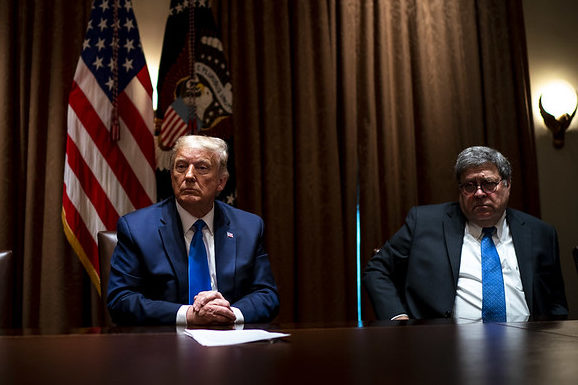
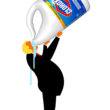
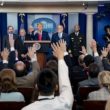
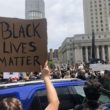
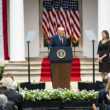

0 Comments